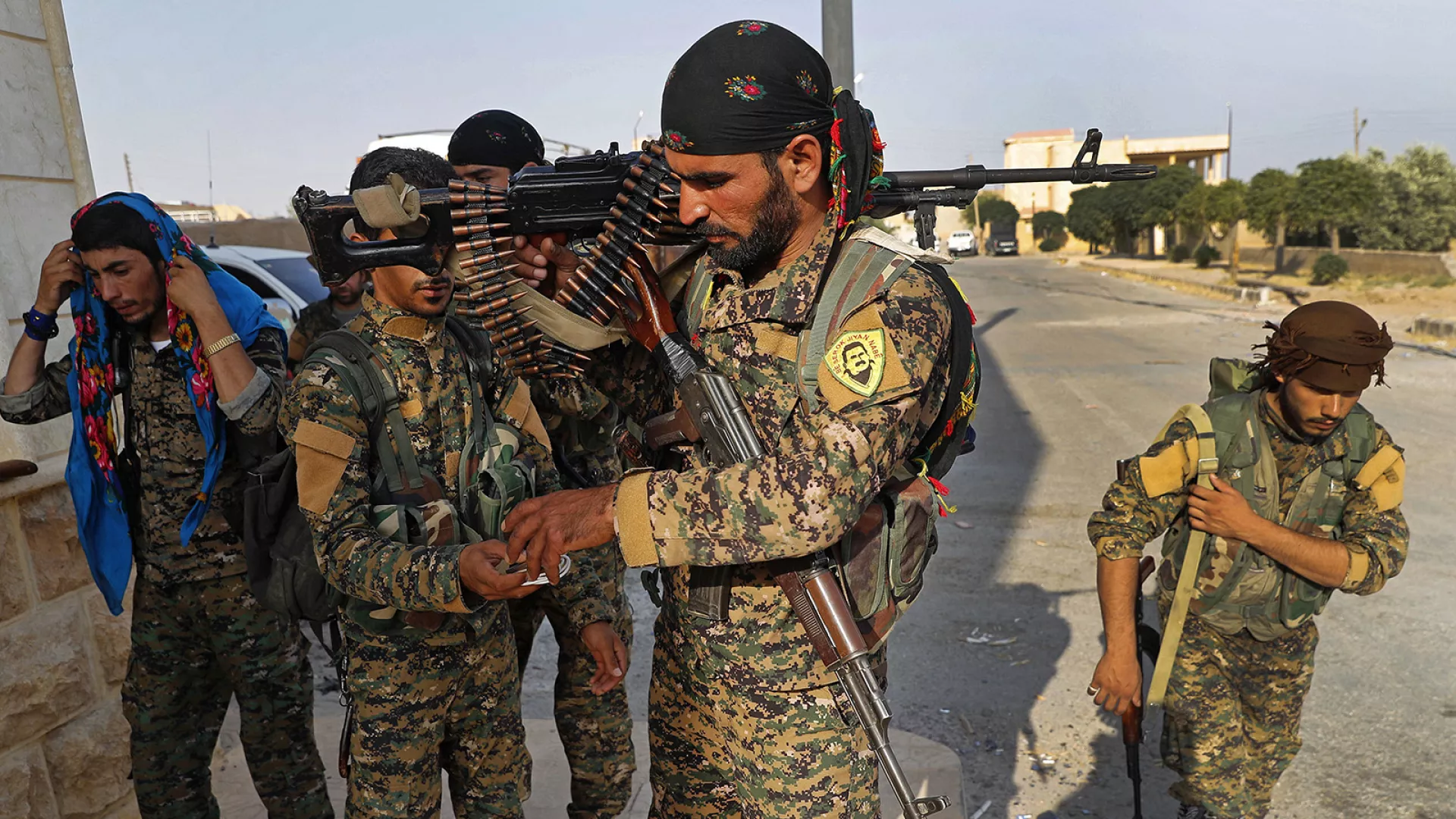
The SDF launched a counter-offensive against the Turkish-backed SNA to reclaim areas near Syria’s northern border. Clashes have intensified since Bashar al-Assad’s fall.
The Kurdish-led Syrian Democratic Forces (SDF) launched a counteroffensive Tuesday against the Ankara-backed Syrian National Army to take back areas near Syria’s northern border with Turkey.
Since the fall of the totalitarian rule of Bashar al-Assad earlier this month, clashes have intensified between the US-backed SDF and the SNA, which captured the key city of Manbij and the surrounding areas.
The weeks-long clashes come at a time when Syria, battered by over a decade of war and economic misery, is negotiating its political future following more than half a century under the al-Assad dynasty’s rule.
Ruken Jamal, spokesperson of the Women’s Protection Unit, or YPJ, under the SDF, told AP that their fighters are just over seven miles away from the centre of Manbij in their ongoing counterattack.
Jamal accused Turkey of trying to weaken the group’s influence in negotiations over Syria’s political future through the SNA.
“Syria is now in a new phase, and discussions are underway about the future of the country,” Jamal said. “Turkey is trying, through its attacks, to distract us with battles and exclude us from the negotiations in Damascus.”
The UK-based war monitor, the Syrian Observatory for Human Rights, said since the SNA’s offensive in northern Syria against the Kurds started earlier this month, dozens from both sides have been killed.
Ankara sees the SDF as an affiliate of its sworn enemy, the Kurdistan Workers’ Party, or PKK, which it classifies as a terrorist organisation. Turkish-backed armed groups, alongside Turkish jets for years, have attacked positions where the SDF are largely present across northern Syria in a bid to create a buffer zone free from the group along the large shared border.
While the SNA was involved in the lightning insurgency — led by the Hayat Tahrir al-Sham or HTS — that toppled al-Assad, it has continued its push against the SDF, seen as Syria’s second key actor for its political future.
Meanwhile, the SDF has enjoyed the backing of Washington, which considers the Kurdish forces to be its main ally against any remaining pockets of the so-called Islamic State group and its satellites.
Ankara not to budge?
On Monday, the SDF spokesperson Farhad Shami said the group’s forces pushed back the Turkish-backed rebels from areas near the Tishrin Dam on the Euphrates, a key source of hydroelectric power. He said the SDF also destroyed a tank belonging to the rebels southeast of Manbij.
The British-based war monitor said on Tuesday that the Kurdish-led group, following overnight fighting, has reclaimed four villages in the areas near the strategic dam.
Turkish jets also pounded the strategic border town of Kobani in recent days.
During Syria’s uprising-turned-conflict, the Kurds carved out an enclave of autonomous rule across north eastern Syria, never allying entirely with al-Assad in Damascus nor the rebels trying to overthrow him.
Even with the al-Assad family out of the picture, it appears that Ankara’s position won’t change, with Turkish Foreign Minister Hakan Fidan’s landmark visit to Syria maintaining a strong position on the Kurdish-led group in his meeting with de facto leader Ahmad al-Sharaa formerly known as Abu Mohammad al-Jolani of HTS.
